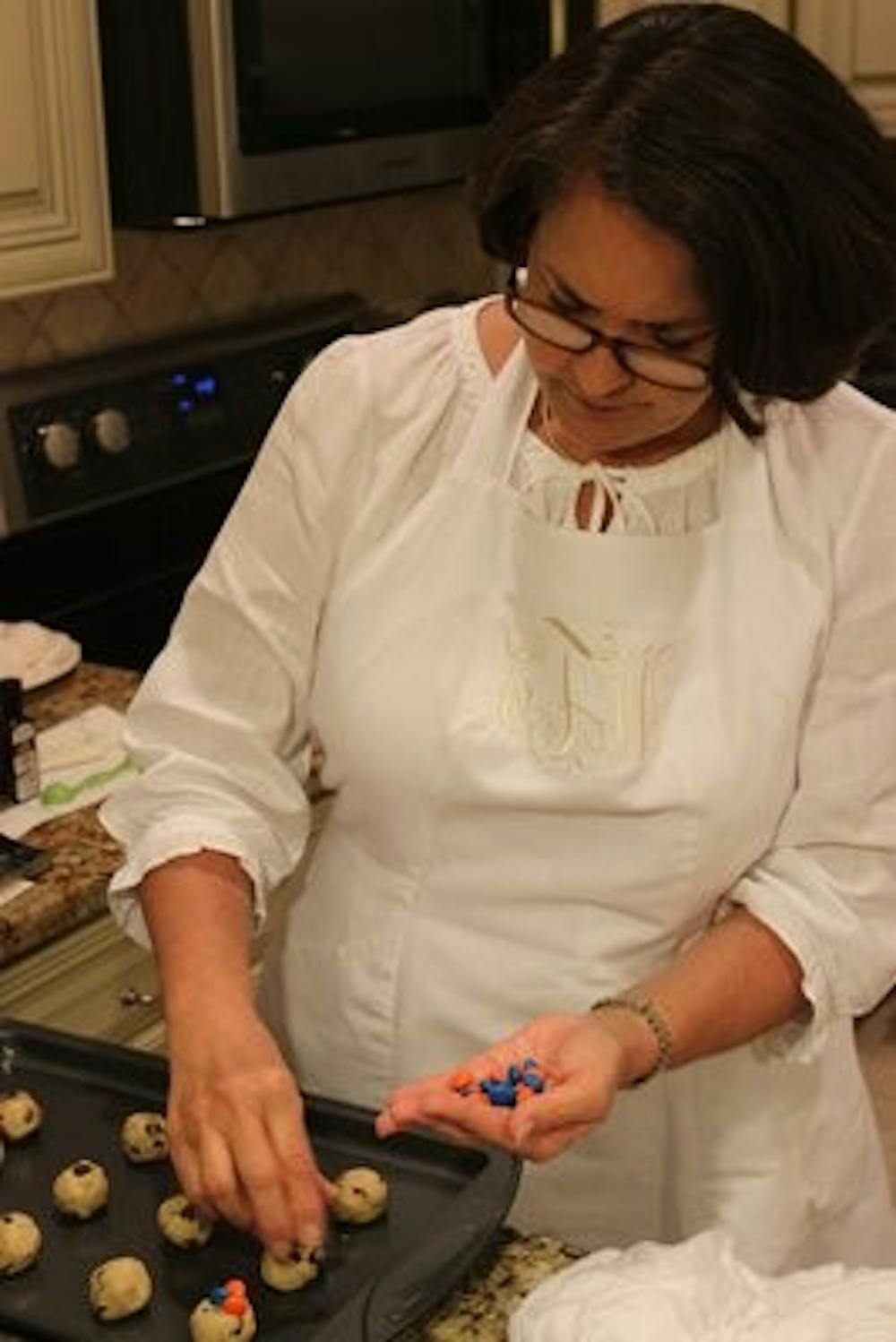Behind the closed doors of a home in an Auburn neighborhood, a new business opportunity is being discovered.
Cindy Thrash opens her double oven in her spotless, white, monogrammed apron and sticks a toothpick in two angel food cakes. A few moist crumbs stick to the wooden toothpick.
She shuts the door and puts five more minutes on the timer.
A baked frosting marshmallow brownie sits on the counter; two whole wheat banana bread loaves are cooling next to it.
The mixer is taking a break after making an old chocolate chip cookie recipe passed down on Thrash's mother's side of the family.
The kitchen is in full-production mode by day, and except for the size and the location in the middle of Thrash's home, the kitchen resembles a commercial baking kitchen, with high-end thermometers, scales and a drawer full of different aprons.
Thrash is operating under Alabama's new Cottage Food Law, which became active in June.
She's not the only one.
Since that time, the Alabama Cooperative Extension System (ACES) has had nine agents across the state training more than 200 people to safely sell food from their homes, according to Jean Weese, food safety, preparation and production extension agent for ACES.
The idea for the law began several years ago when two legislators in south Alabama had constituents who wanted to sell non-hazardous food from their home legally, without going through rigorous processing and education. Alabama legislators reviewed states with similar laws and found a balance between safety and business.
The law allows an individual to sell oven baked goods, candy, canned jam, jellies and dried herb mixes they make in their home.
Individuals must sell the product directly to consumers, pass a food safety course offered by ACES and label the food with their name, address and a statement saying the food is not inspected by the local health department.
It is still illegal to sell meat, fish, low acid or acidified foods produced from home, and individuals cannot sell their products over the Internet or to distributors.
"I think the biggest seller in this kind of thing is people making birthday cakes or wedding cakes, which a lot of people did out of their house, but it wasn't legal," Weese said. "Now they can sell those types of products legally,"
The Cottage Food Law requires sellers to sell directly to customers so people can have the opportunity to ask about the type of homes sellers kept and any allergens the food may contain.
"There is a requirement they take a food safety course, which is two hours, then they get a certification that lasts for five years," Weese said. "That is to tell them if they are going to be manufacturing and they are going to sell it, you need to make sure the cat's not on the counter, you're washing things off, you're doing it in an environment that is as safe and as healthy as it can be."
The law also stipulates a person cannot make more than $20,000 per year from the sales of their goods. The state reasoned it would be difficult for a person to make that amount of money without a commercial kitchen.
Thrash agrees $20,000 is a fair amount.
"You set your goal," Thrash said. "Do I want or need to make $100 this week, or do I want or need to make $1,000 this week?"
When shopping for ingredients, Thrash will typically buy 300 eggs from the Auburn Meat Lab and 100 pounds of sugar and flour at one time.
Her monthly income from baking varies, and when she files her sales taxes on the 20th of every month, she uses her Social Security number as a sole proprietorship to pay her state and federal taxes.
Local food production in Alabama is becoming more popular. Thrash's appreciation for the farm-to-table movement and her desire to share family recipes handed down from the early 1900s piqued her interest.
Her family was eager for her to stop talking about selling her baked goods and to actually do it.
The warm cookies come out of the oven and Thrash is nearly done with her Friday baking.
Her monogrammed apron her daughter helped design is still completely white, without an ounce of dough or chocolate on it.
The immediately recognizable soft, rich smell of sugar and sweets fills the house.
Talking to her mother over the phone from Birmingham, Catherine Gayle can imagine the smell of her mother's in-home business.
"It smells like home," Gayle said.
Do you like this story? The Plainsman doesn't accept money from tuition or student fees, and we don't charge a subscription fee. But you can donate to support The Plainsman.




